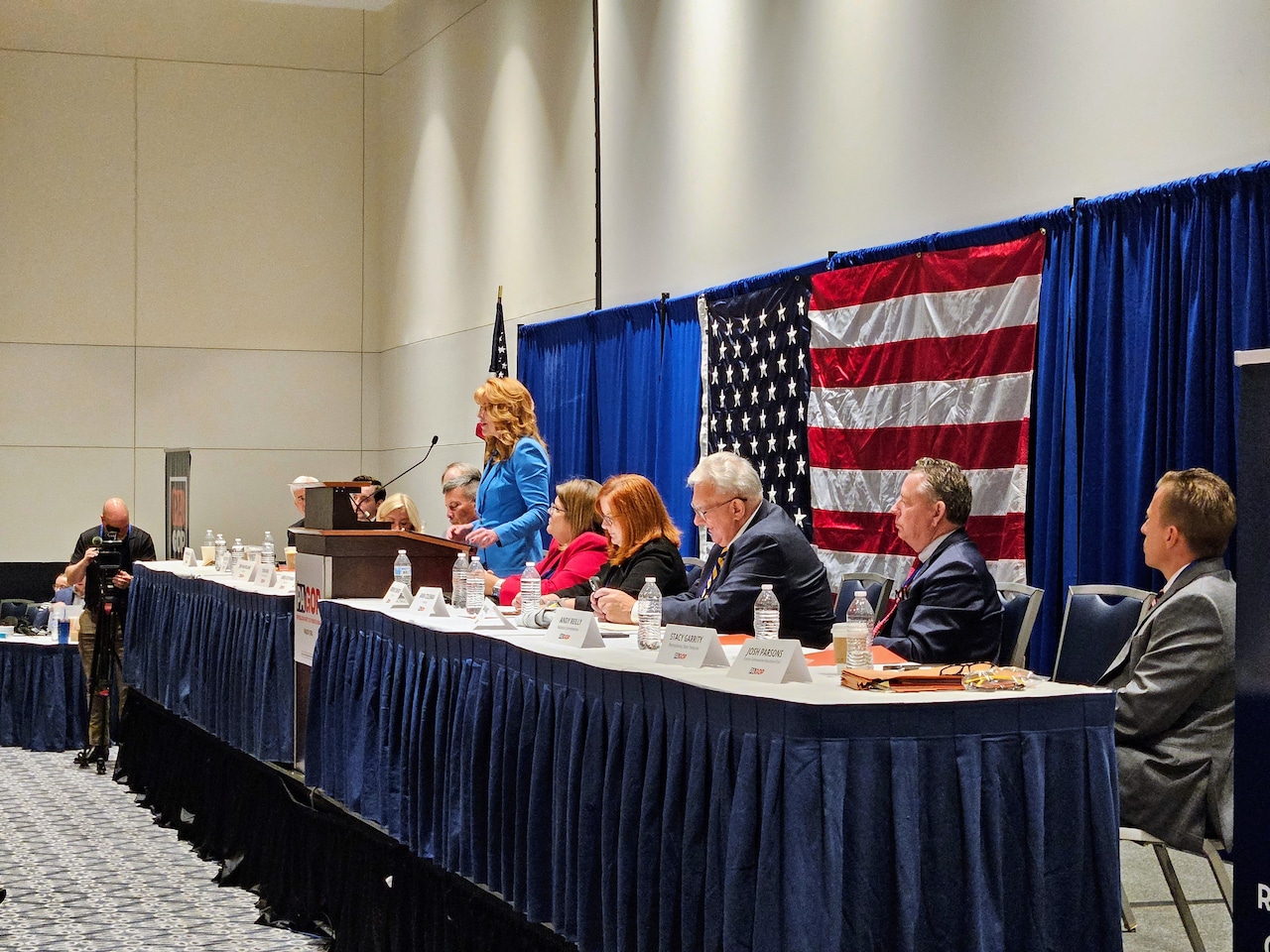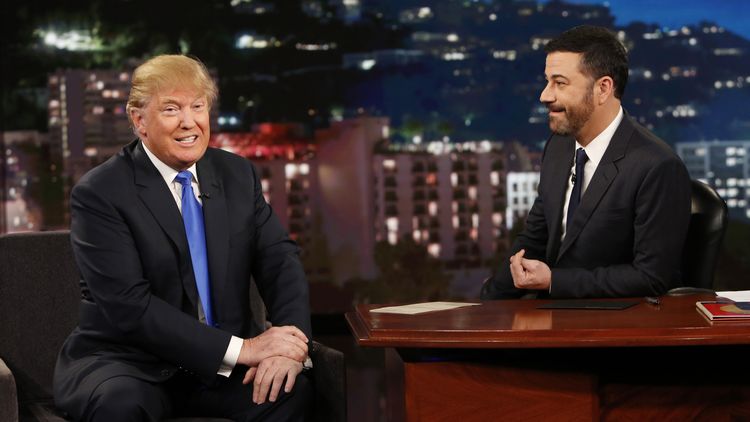
There’s been a lot of mingling of Christianity and politics since Charlie Kirk was murdered. Tucker Carlson opened one of his shows with a straight-up sermon: “This is a religion committed to love above all and to living in peace and harmony, truly. It’s a universalist religion that believes that every person has a shot at heaven. It’s not exclusionary at all.”
Erika Kirk used her time at her husband’s memorial service to forgive his murderer, which is one of the more radical things Christians are commanded to do. At the same service, JD Vance told the crowd that he has traditionally been uncomfortable talking about his faith in public but that “I have talked more about Jesus Christ in the past two weeks than I have my entire time in public life.”
Some people are made nervous by this mingling of God talk with politics. They legitimately fear that religion is such a divisive and explosive force or that it’s being imposed on them, that it should be kept from the public square and practiced in the privacy of church and home. Keep God and politics separate.
I wonder how much such people know about American history. The founders believed that democracy could survive only if citizens could restrain their passions, be obedient to a shared moral order and point their lives toward virtue. They relied on religious institutions to do that moral formation. As John Adams put it, “Our Constitution was made only for a moral and religious people. It is wholly inadequate to the government of any other.”
Alexis de Tocqueville observed, “For the Americans, the idea of Christianity and liberty are so completely mingled that it is almost impossible to get them to conceive of one without the other.”
I’d add only that a naked public square is a morally ignorant public square. American public debate was healthier and the conversation more profound when religious leaders like Reinhold Niebuhr, Abraham Joshua Heschel, Martin Luther King Jr. and Fulton Sheen brought their faith to bear on public questions. Today morality has been privatized and left up to the individual. The shared moral order is shredded, and many people, morally alone, have come to feel that their lives are meaningless.
My friend Jonathan Rauch likes to remind people that he is a gay atheist Jew, but in his recent book “Cross Purposes: Christianity’s Broken Bargain With Democracy,” he argues that faith and politics do not exist independently of each other: “I came to realize that in American civic life, Christianity is a load-bearing wall. When it buckles, all the institutions around it come under stress, and some of them buckle, too.” A crisis within Christianity is a crisis for all Americans.
He goes on to argue that far from being separate, spirituality and liberal democracy need and rely on each other. Human life revolves around four big questions: What is the meaning of life? What is the ultimate source of right and wrong? How can we reduce the amount of suffering and injustice in the world? How can we understand the world without resorting to magic, using reason and evidence instead?
Rauch argues that spiritualism (religion plus the other moral philosophies) helps us answer the first two questions and that secularism helps us answer the last two. He writes, “My claim is not just that secular liberalism and religious faith are instrumentally interdependent but that each is intrinsically reliant on the other to build a morally and epistemically complete and coherent account of the world.”
You may be religious or not religious, but you have an interest in living in a society that produces people who are spiritually, morally and intellectually healthy. Thus, the crucial question is not how to separate spirituality (of religious and nonreligious varieties) and politics but how to put them in proper relation to each other.
Christians have been arguing about how to do this ever since Jesus did that bit about rendering certain things unto Caesar and other things unto God. The dominant view over the past few hundred years is that religion is prepolitical. It deals with deeper realities than the ones we argue over in politics. Religion is about ultimate concerns — about the moral formation of the person and the salvation of the soul. Politics is about how to settle disagreements, mostly about material things. Religious truth is universal and applicable in all times to all people. Political views depend on the circumstances, what is prudent at this or that time or place. The Bible doesn’t have a political program; it just tells you that the people on all sides of a political dispute are sinners in need of grace. Politics rests on spiritual and moral life but is fundamentally different.
I’ve always been partial to the Dutch statesman Abraham Kuyper’s theory of the spheres. Society is made up of different spheres, he argued, like the family, the state, education, the church and business. God has ultimate authority over all of them, but each sphere has its own logic, its own way of doing things, its own sort of authority. Society works well when each sphere respects the dignity of others. I’ve always liked this theory because people think differently, depending on which sphere they are currently in. When I say I believe in God, I mean something very different from when I say I believe in conservatism or liberalism. We shouldn’t bring the cognitive and emotional style of one sphere into a different sphere.
My problem with the Kirk memorial service and all the conversation about his assassination generally is that many people seem to have no coherent idea about the proper relationship between faith and politics. In their minds, the two spheres seem all mixed together higgledy-piggledy.
One faith leader told my Times colleague Elizabeth Dias about a conversation she had had with Charlie Kirk, who told her, “I want to talk about spiritual things, and in order to do that, I have to enter the political arena.”
Why on earth would Kirk believe that?
As people eulogized Kirk, it was rarely clear if they were talking about the man who was trying to evangelize for Jesus or the one trying to elect Republicans. A spokesperson at Turning Point declared, “He confronted evil and proclaimed the truth and called us to repent and be saved.” Is that what Kirk was doing when arguing with college kids about tariffs?
The ceremony bounced back and forth between prayer and political point scoring, between people offering to love their enemies and President Trump proudly hating them, between declarations that all humans are made in the image of God and Stephen Miller basically declaring that all his enemies are vermin.
Bob Smietana, an outstanding journalist at Religion News Service, observed that the ceremony was light on the sort of rituals that religions usually rely on to comfort the grieving. But it was rich in the language of triumph. Speaker after speaker observed that Kirk’s martyrdom would only make his movement more powerful. Miller, who pulls off the neat trick of being a Jewish Christian nationalist, declared, “The day that Charlie died, the angels wept, but those tears have been turned into fire in our hearts. And that fire burns with a righteous fury that our enemies cannot comprehend or understand.”
I thought Erika Kirk’s eulogy was the loveliest. And I was especially struck that she spent several paragraphs explaining the idea of complementarity — the idea that the man is the head of the family and that the woman’s job is to be an encourager, a preserver, a guardian. “I made sure that when Charlie returned from work, it was his sacred landing place away from the worries of the world,” she said.
Complementarianism is not my cup of tea, but at least it’s a theory of how authority is supposed to work in the home. Where in the ceremony or in the vast ocean of words that surrounded it was there any evidence of a theory of how religion is supposed to show up in the political sphere? Many of the remarks rested on the unexamined assumption that being a Christian and being a Republican are basically the same thing.
I was reminded of a point the journalist Jon Ward once made — that evangelical churches do a decent job discipling their members in how to behave within the family but that most evangelicals “have not been discipled in how to exercise public character or public virtue.”
What happens when people operate without any coherent theory of how religion should relate to politics?
First, people treat electoral politics as if it were a form of spiritual warfare. A battlefield mentality prevails between the forces of Jesus and the forces of Satan. Fear replaces the traditional Christian virtue, hope: We’re under attack, and we have to destroy our enemies! That’s the easiest way to mobilize people.
Second, the process of moral formation is perverted. Instead of discipling people in the Christian virtues of faith, hope and charity, people get discipled in the political passions — enmity, conquest and the urge to dominate.
Third, people develop an addiction to rapture. You’ve probably heard the sort of Christian worship music that preceded and punctuated Sunday’s ceremony. Traditional hymns from centuries gone by covered a range of experiences, but modern worship music tends to hit the same emotional chord over and over again: rapture and praise. Its job is to drive your arms heavenward or to knock you to your knees. It can be a delicious and transforming experience.
The problem is that politics is prosaic. Deliberation and negotiation work best in a mood of moderation and equipoise. If you want to practice politics in the mood best suited for the altar call, you’re going to practice politics in a way that sends prudence out the window.
Fourth, a destructive kind of syncretism prevails. Syncretism is an ancient religious problem. It occurs when believers try to merge different kinds of faith. These days, it’s faith in Jesus and the faith in MAGA all cocktailed together. Syncretism politicizes and degrades faith and totalizes politics.
Fifth, it kicks up a lot of hypocrisy. It’s nice to hear Carlson say he practices a religion of love, harmony and peace, but is that actually the way he lives his life?
Finally, it causes people to underestimate the power of sin. The civil rights movement had a well-crafted theory of the relationship between religion and politics. The movement’s theology taught its members that they were themselves sinful and that they had to put restraints on their political action in order to guard against the sins of hatred, self-righteousness and the love of power. Without any such theory, MAGA imposes no restraints, and sin roams free.
The critics of Christian nationalism sometimes argue that it is a political movement using the language and symbols of religion in order to win elections. But the events of the past week have proved that this is a genuinely religious movement and Charlie Kirk was a genuinely religious man. The problem is that unrestrained faith and unrestrained partisanship are an incredibly combustible mixture. I am one of those who fear that the powerful emotions kicked up by the martyrdom of Kirk will lead many Republicans to conclude that their opponents are irredeemably evil and that anything that causes them suffering is permissible. It’s possible for faithful people to wander a long way from the cross.



